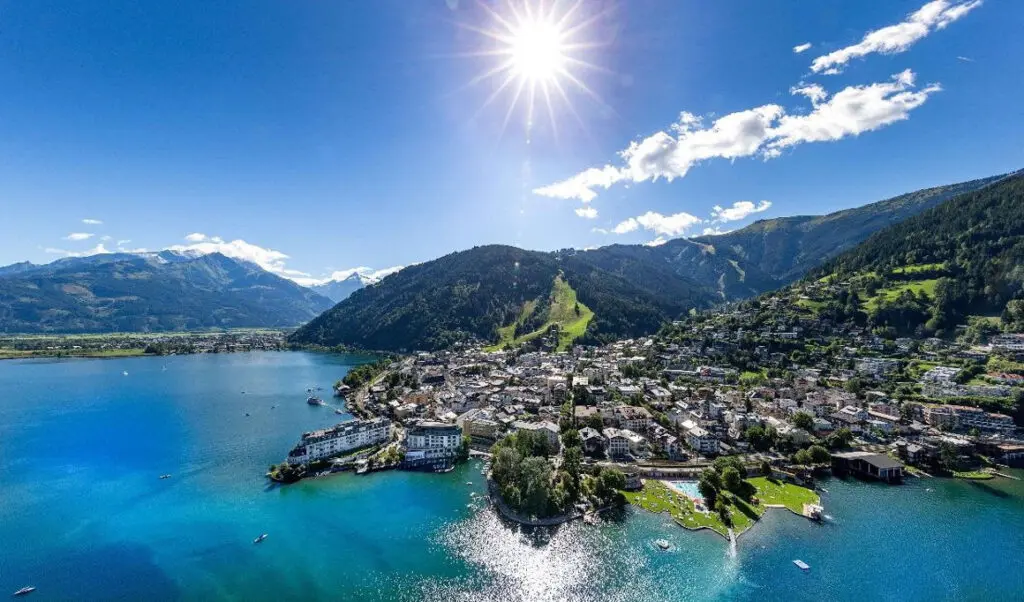UN Tourism is shining a spotlight on innovative initiatives from its Best Tourism Villages as they embark on a journey towards sustainability. Recognized for their commitment to minimizing emissions and reducing waste, these villages demonstrate how rural communities are at the forefront of adopting eco-friendly practices that enhance resource efficiency while preserving cultural heritage. From Nkotsi in Rwanda to Sortelha in Portugal, each village showcases unique strategies aimed at mitigating environmental impacts while fostering economic growth and community welfare.

Nkotsi, Rwanda: A Model for Community Engagement
Nestled in the stunning Volcanoes National Park, Nkotsi is home to 30% of the global mountain gorilla population. To promote sustainable community development, Nkotsi engages locals in various environmental conservation programs. One standout initiative, The Igihoho Project, aims to combat plastic pollution by providing eco-friendly seed bags crafted from banana barks by local women. Since its launch, over 15,000 bags have been produced, with more than 70% sold to local nursery businesses, demonstrating a successful blend of sustainability and economic empowerment.
Pozuzo, Peru: Protecting Nature and Biodiversity
Located along the Selva Central tourist route, Pozuzo has embraced the “Sustainable Pozuzo 2023” initiative in collaboration with local government and universities. This program aims to protect vital water sources and safeguard biological corridors while promoting eco-friendly practices such as biodegradable packaging and prioritizing local products. By repurposing organic waste and harnessing renewable energy for street lighting, Pozuzo is paving the way for sustainable tourism in the region.
Choachí, Colombia: Recycling for Food
Just 39km from Colombia’s capital, Choachí is capitalizing on its rich natural and cultural resources to promote tourism. In partnership with the private recycling company Bancalimentos, Choachí has launched an innovative initiative encouraging residents to exchange household waste—such as plastics and cardboard—for food. This creative approach not only promotes recycling but also addresses food insecurity in the community.
Slunj, Croatia: Preserving Natural Beauty
Situated alongside the tranquil Slurnjčica and Korana rivers, Slunj is prioritizing environmental sustainability to mitigate tourism’s negative impacts. The town’s “Drop the Plastic, Make a Difference” initiative highlights its commitment to reducing plastic use and implementing sustainable practices. With a comprehensive Waste Management Plan and smart city initiatives in place, Slunj is dedicated to minimizing its ecological footprint while preserving its stunning natural landscapes.
Zell am See, Austria: A Model of Carbon Reduction
The picturesque lakeside village of Zell am See has implemented 11 measures through its Klima und Energie Modell Region (KEM) program to support sustainability. These initiatives have successfully reduced carbon dioxide emissions and introduced sustainable modes of transport. The village is also working with local accommodation providers to achieve certification with the European Eco-Label, emphasizing waste reduction and increased use of solar energy.
Sortelha, Portugal: Pioneering Eco-Friendly Solutions
Sortelha, one of Portugal’s best-preserved villages, is taking significant strides towards sustainability through its energy pilot initiative aimed at optimizing energy efficiency and reducing its carbon footprint. A €3M investment in a new tourist resort aligns with sustainability principles by utilizing local raw materials and supporting traditional construction methods, ensuring that Sortelha remains a model of responsible tourism.